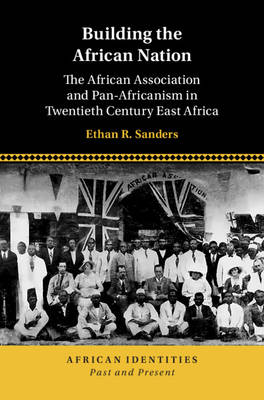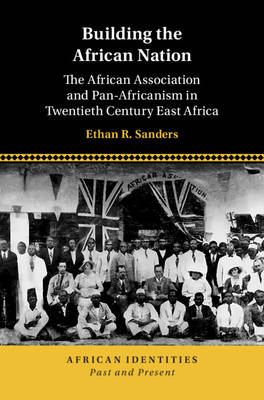
Bedankt voor het vertrouwen het afgelopen jaar! Om jou te bedanken bieden we GRATIS verzending (in België) aan op alles gedurende de hele maand januari.
- Afhalen na 1 uur in een winkel met voorraad
- In januari gratis thuislevering in België
- Ruim aanbod met 7 miljoen producten
Bedankt voor het vertrouwen het afgelopen jaar! Om jou te bedanken bieden we GRATIS verzending (in België) aan op alles gedurende de hele maand januari.
- Afhalen na 1 uur in een winkel met voorraad
- In januari gratis thuislevering in België
- Ruim aanbod met 7 miljoen producten
Zoeken
Building the African Nation
The African Association and Pan-Africanism in Twentieth Century East Africa
Ethan R Sanders
€ 172,95
+ 345 punten
Omschrijving
How did people in East Africa come to see themselves as 'Africans, ' and where did these concepts originate from? Utilizing a global intellectual history lens, Ethan Sanders traces how ideas stemming from global black intellectuals of the Atlantic, and others, shaped the imaginations of East Africans in the early twentieth century. This study centers on the African Association, a trans-territorial pan-Africanist organization that promoted global visions of African unity. No mere precursor to anti-colonial territorial nationalism, the organization eschewed territorial thinking and sought to build a continental African nation from the 1920s to the 1940s, at odds with later forms of nationalism in Africa. Sanders explores in depth the thought of James Aggrey, Paul Sindi Seme, and Julius Nyerere, three major twentieth-century pan-Africanists. This book rethinks definitions of pan-Africanism, demonstrating how expressions of both practical and redemptive pan-Africanism inspired those who joined the African Association and embraced an African identity.
Specificaties
Betrokkenen
- Auteur(s):
- Uitgeverij:
Inhoud
- Aantal bladzijden:
- 344
- Taal:
- Engels
- Reeks:
Eigenschappen
- Productcode (EAN):
- 9781009625609
- Verschijningsdatum:
- 14/08/2025
- Uitvoering:
- Hardcover
- Formaat:
- Genaaid
- Afmetingen:
- 152 mm x 229 mm
- Gewicht:
- 625 g

Alleen bij Standaard Boekhandel
+ 345 punten op je klantenkaart van Standaard Boekhandel
Beoordelingen
We publiceren alleen reviews die voldoen aan de voorwaarden voor reviews. Bekijk onze voorwaarden voor reviews.









